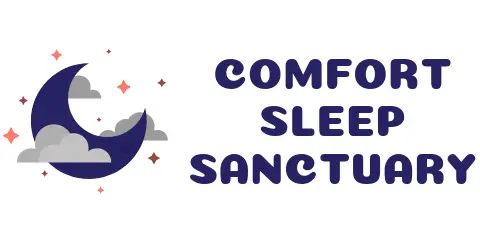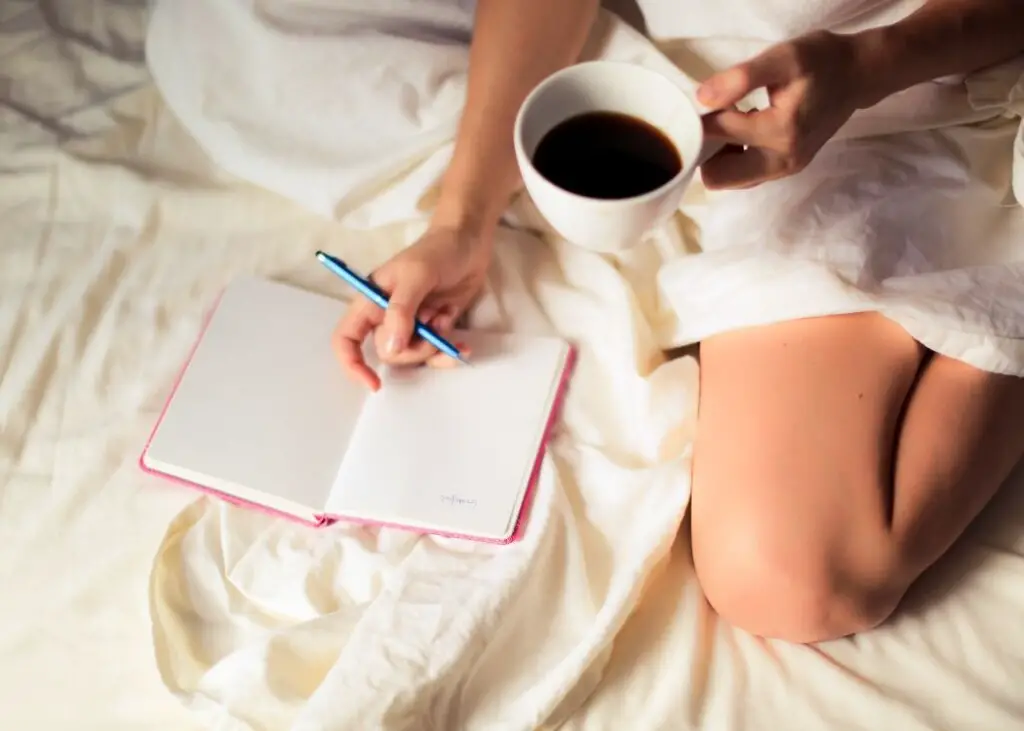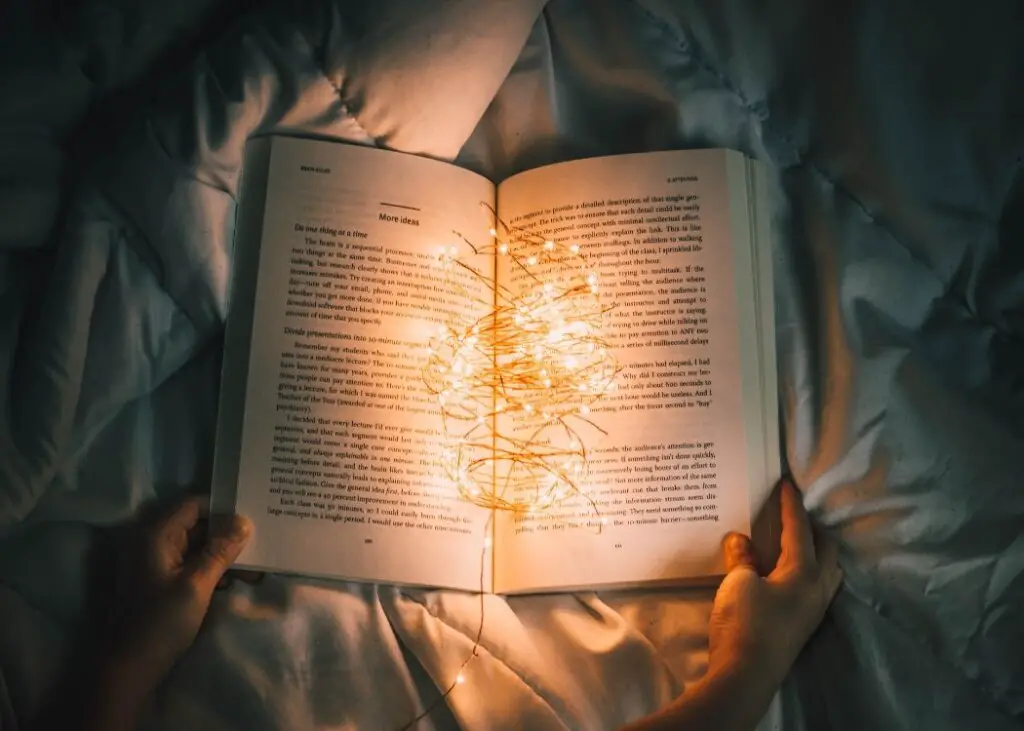Table of Contents
**This page contains affiliate links and I will be compensated if you make a purchase after clicking on my links**
When you were a child you had a fixed bedtime. Before the clock hit that hour, your parents made sure you followed a strict bedtime ritual: you took a bath, you drank a glass of warm milk, changed into your PJs, brushed your teeth, then curled up in bed for a bedtime story.
You never had any trouble falling asleep, did you?
Part of that was due to the bedtime ritual, or series of activities that communicates to your body that it’s time to go to sleep.
According to science, some of those activities may directly help you fall asleep, such as the warm bath before bed.
Other activities, such as the warm milk, do little to help you fall asleep. But they count as a ritual.
There is also the placebo effect in play. If you think that drinking warm milk will help you fall asleep, then it helps you fall asleep.
Therefore, almost anything can help you fall asleep if you turn it into a bedtime ritual.
So, return to your childhood and create your own.
First some guidelines:
- Be consistent
You don’t create a ritual by doing things randomly. Create a habit by doing a similar thing every night before you go to bed.
- Have a consistent bedtime
Also wake up at a consistent time. Avoid the urge to sleep-in on weekends.
If your body knows that you go to bed at 10 PM, then your sleep hormones associated with your circadian rhythms, i.e. melatonin, will be at the correct level.
Once you’ve chosen your bedtime, work backward to determine when you should start your bedtime routine.
- Avoid arousal
No, it’s not what you think.
Anything that stresses us out activates that primitive flight or fight response and prevents us from falling asleep. We must stay vigilant and awake if there are dangers out there in the night.
So, no late-night news or mental to-do lists for work tomorrow.
Ironically, in most cases, those who suffer from insomnia, can’t fall asleep because they are too stressed out about not falling asleep. It’s a vicious cycle.

1. Warm bath
2. Warm shower
3. Curl up under a heated blanket
The key to the warm bath is the warming effect. Your body thinks you are “too hot” so it thermoregulates by adjusting blood flow from your core to your hands and feet at the periphery. This drops your temperature.
It’s thought that this drop in temperature mimics the natural drop in temperature that we all undergo as we prepare to go to sleep. Again, your body does this by adjusting your circulation from your core to your periphery.

4. Meditate
There are different types of meditation, but Mindfulness-Based Intervention (MBI) has been studied extensively for the treatment of psychological disorders, including insomnia.
Although the definition of “mindfulness” may vary, in general, MBI is a way of focusing on the present moment without judgment.
- In a 2015 study by Black, et. al., subjects with insomnia who practiced mindful meditation had a significant improvement in sleep (as measured by the Pittsburgh Sleep Quality Index) compared to insomniacs who only received education on sleep hygiene.
Obviously, the placebo effect can’t be ruled out. But it still works.
5. Qigong
6. Tai Chi
Qigong involves repetitive movements that coordinate body, breath, and mind based on Chinese philosophy. Tai Chi is similar but focuses more on the form of a series of movements that flow from one to the next. Qigong is for health, while Tai Chi is considered a martial art.
Both are sometimes referred to as movement-based meditation.
Both are relaxing and ritualistic—perfect for bedtime.
- In a recent 2019 review, Wang, et. al. studied the scientific literature on sleep and the effect of “mind-body therapies” including meditation, tai chi, qigong, and yoga. All four were separately found to help sleep quality and reduce insomnia.
7. Yoga, Pilates, or stretching
As with any exercise, make sure you are warm first to avoid pulling anything. This may be ideal after the warm bath above.
8. Evening walk
Although intense exercise is not recommended immediately before going to bed, exercise earlier in the evening doesn’t inhibit sleep, and in some cases, may be beneficial.
- In a small 2019 study by Thomas, et. al. a group of runners performed either a high-intensity, low-intensity, or no workout 3.5 hours before bedtime. Compared to no workout, both the high- and low-intensity workouts improved sleep time. However, there was no change in subjective sleep quality.
Other studies didn’t show a sleep benefit with evening exercise, but there was no negative impact on sleep either.
9. Light snack
Eating a large meal before bed is not recommended to avoid indigestion and reflux. However, a light snack to keep your stomach from grumbling is fine.
Except for tart cherries or kiwi, there is very little evidence that specific foods help with sleep. But they all count as a ritual.
Even warm milk.
Avoid foods and beverages with caffeine, such as chocolate, coffee, and soft drinks.
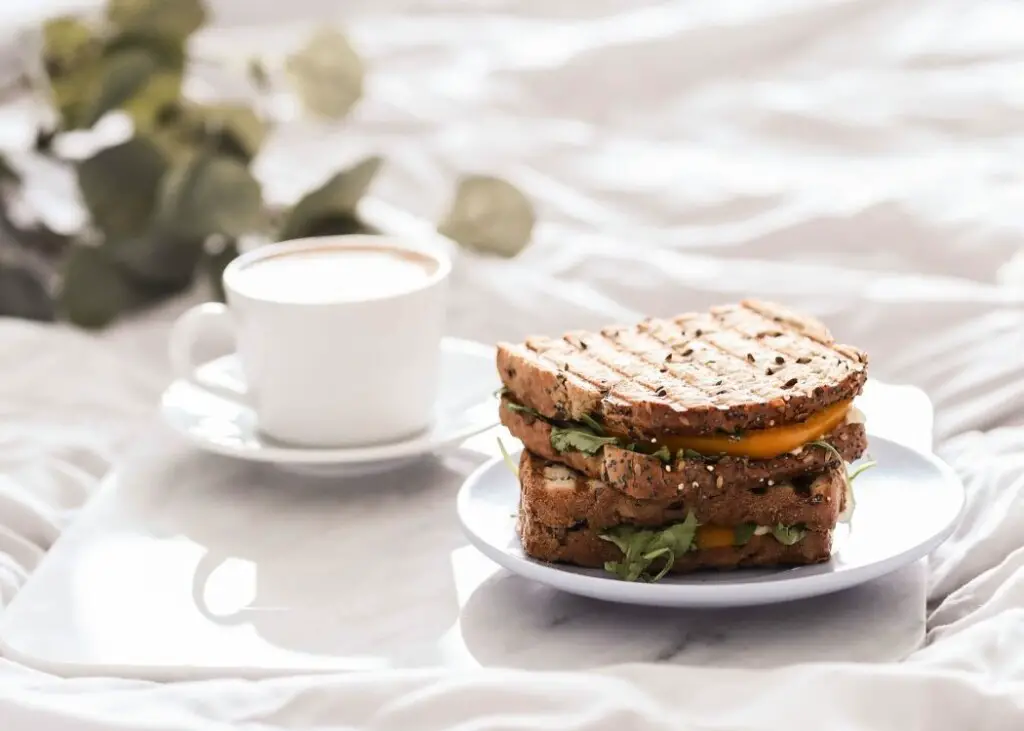
10. Cup of herbal tea
Pour yourself a cup of tea containing chamomile and valerian. Both act on the GABA neurotransmitter pathway, similar to how anti-anxiety drugs work.
Not a fan of chamomile? Any herbal tea will work as a ritual. Just avoid regular tea that contains caffeine.
11. Skincare
At some point you’re brushing your teeth, so we don’t need to count that.
But while you’re standing at the sink, what other routines do you have to care for your skin? Perhaps a relaxing exfoliating mask.
(And no, they’re not just for us girls.)
If you’re prone to dry skin, slather on the body lotion. Bonus points, if it’s scented with lavender. Use this opportunity to give yourself a mini massage.
Don’t forget your feet. Slather on the lotion and seal your feet in a pair of cozy (but breathable) socks.
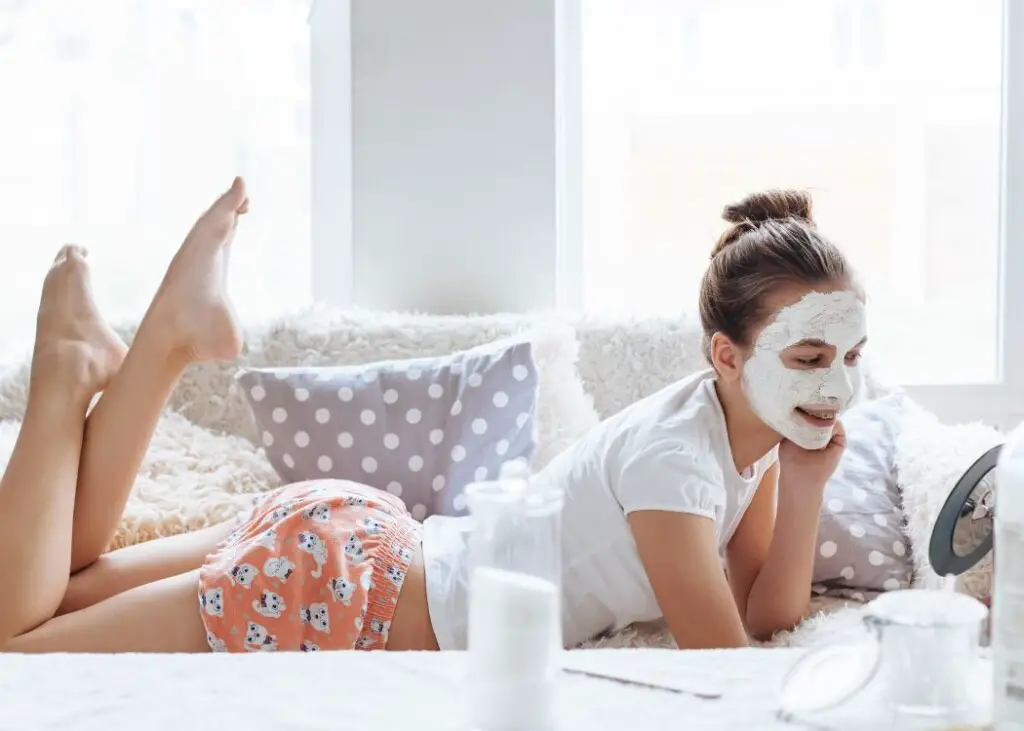
12. Unmake your bed
This requires that you actually make your bed every morning, a thing I haven’t done since my college dorm days.
But other people on the internet swear by it. It’s a ritual and it counts.
13. Straighten up your bedroom
This is another internet favorite. Does decluttering your space, declutter your mind?
Or is it simply that you’re a neat freak and the clutter is bothersome? (Even with the lights off you know it’s there…)
I wouldn’t pull out the vacuum but spending a few minutes folding clean laundry can be quite soothing.
Check that the things you may need are on your nightstand: phone, water, and the alarm clock.
14. Wear pajamas (or nothing at all)
By the same token, wear separate clothing for bed (or none at all).
(Like most of you, I change into my “pajamas” the second I’m home. So not much of a ritual there.)
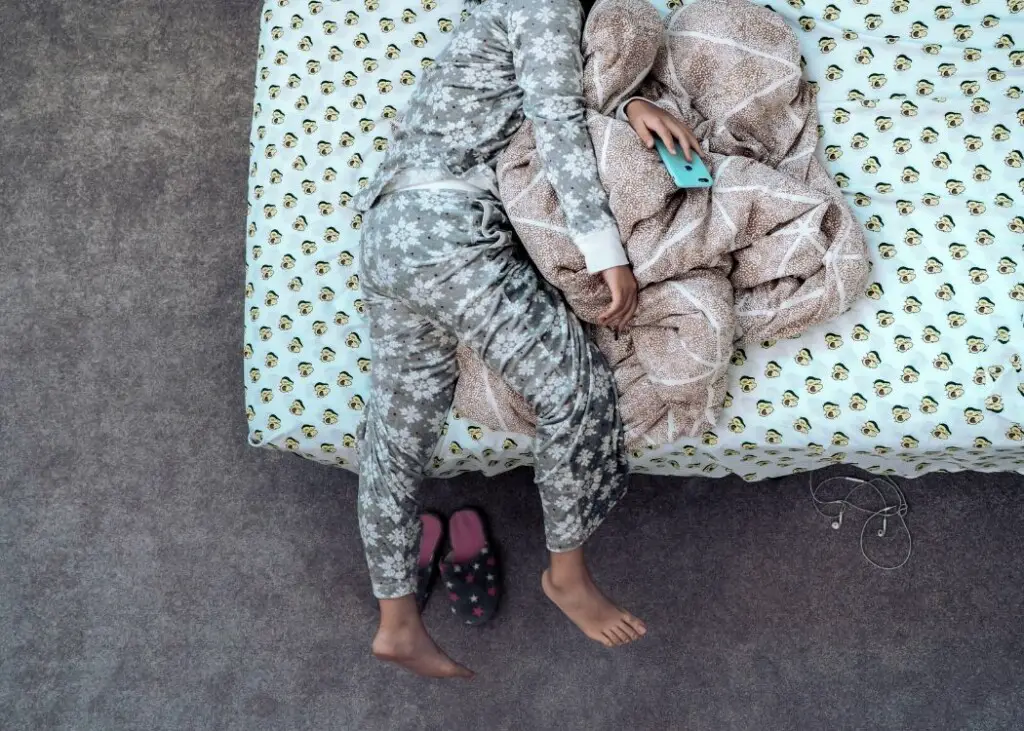
15. Massage
On your own or better yet, with an enthusiastic partner.
16. Write down your to-do list
One recommendation from the internet is to briefly write in your journal before falling off to sleep. Will this reinforce worry, and the arousal state you are trying to avoid?
- In a 2018 study by Scullin, et. al. over fifty college students participated in a sleep study in which they were first asked to either
- write a to-do list of things they needed to do in the future, or
- “journal” about tasks they had already completed
- The authors were surprised to discover that the students who completed a to-do list fell asleep significantly faster than those that journaled
The longer the to-do list, the faster they fell asleep.
The key is to write down your unfinished tasks, rather than spending time mentally pondering them. Perhaps this allows you to temporarily release those worrisome tasks from your brain?
The authors also conjectured that the journaling of past activities may remind you of your future to-dos. Which now you need to remember and worry about.
Or maybe it’s just the ritual.
17. Storytime
Stories before bed aren’t just for children.
Technically, we should avoid screens and the bad blue light they emit. Blue light, which is a component of regular white light, suppresses melatonin, the hormone that is supposed to increase during the night and help set our circadian rhythm.
There is software available for phones, tablets, and computer screens, that will shift the color palette to a nice orange. However, there’s still a bit of blue that gets through.
But I still watch TV before bed. It’s my ritual.
Read a book. Preferably one on old-fashioned paper, not a screen.
Audiobooks and podcasts are even better. There’s something very relaxing about listening to someone read you a story.
(Perhaps it’s a response left over from childhood… And may be the reason we, unfortunately, nod off during meetings and lectures…)
A word of caution, however. Don’t read a “page-turner”; you don’t want to become so engrossed that you stay up all night reading. (Guilty!)
Instead, read or listen to something you already know. Familiarity will strengthen the ritual.
Re-read Game of Throne, the Lord of the Rings trilogy, or the Harry Potter series
18. Listen to music
Listen to your favorite music.
- A 2018 meta-analysis by Feng, et.al. reviewed the available literature on music and sleep and found that those with insomnia benefited from either listening to music or listening to music while relaxing
You may get to sleep just fine listening to heavy metal. Whatever works.
- In a 2018 study by Trahan, et.al. people were surveyed about their bedtime music habits and why they thought music worked to help them fall asleep
- People preferred a variety of music genres—yes, including metal (3.35%). The most popular was classical music, for 32% of respondents.
- There were many reasons (and associated beliefs) as to why respondents used music to fall asleep, but the reasons tended to fall into one of four themes:
- Music stimulates sleep
- Music is part of a sleep routine
- Music induces a state conducive to sleep, i.e. relaxation
- Music is a distraction from things that would block sleep, i.e. worry
Again, it doesn’t matter if any of these reasons are true or not. Belief and ritual are what matters.
In addition to calm music, we may also enjoy calm ambient sounds. Rainfall, windchimes, or even the white noise of a running fan.

19. Before bed scents
In addition to your bath, spray lavender, or a similar scent that you enjoy, on your pillow. Or briefly microwave a lavender-infused stuffed animal for bed.
Scented candles are not recommended. Because fire.
You can burn a candle or incense while doing one of your other bedtime rituals, such as a warm bath or yoga stretch. However, make sure it’s out before you get into bed.
Likewise, diffused essential oils are not recommended if you have pets. If you are pet-free then diffuse essential oils only for 30-minutes or so. After that, you acclimatize to the scent and any benefit will be gone.
20. Prayer
Does prayer before bed help you sleep? Prayer is a ritual in which you release your burdens to a Higher Power.
And yes, when it comes to sleep, science supports prayer. In a recent 2018 review by Hill, et. al. analyzing population-based studies of large groups, people with religious involvement reported better sleep.
The hypothesis is that religion reduces the “physiological arousal associated with psychological distress”. In other words, if you worry less, you sleep better.
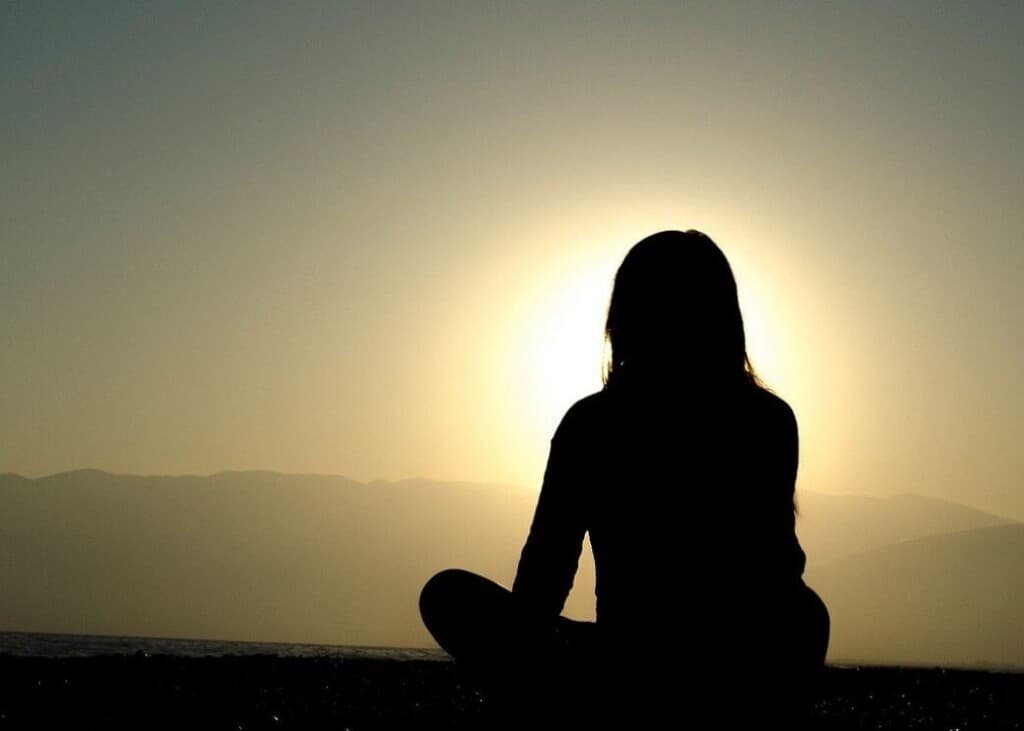
Have a peaceful and restful sleep.
Nightie night.
First photo credit: ©choreograph via Canva.com
Want to learn more about the products mentioned?
[If you experience issues with menus or links not working, it is most likely due to your Ad blocker.]
